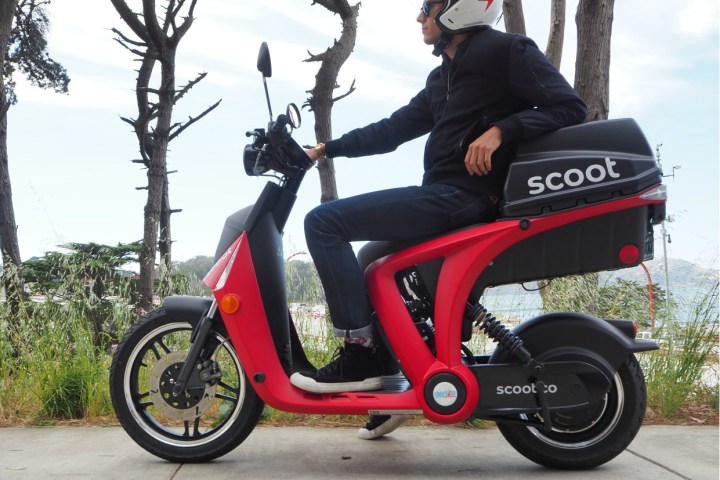
Scoot has seen “exponential” growth since being launched in 2012, and locals should soon spot some new scooters on the street, which come from GenZe’s Ann Arbor, Michigan manufacturing plant. They are keyless vehicles that are unlocked with a smartphone.
“We’ve never been able to fully meet our riders’ demand for scoots until now. The electric scooter is the best way to get around town, and now our riders will be able to get one whenever they need to go anywhere,” said Scoot founder and CEO Michael Keating in a blog post. “Anyone in SF will be able to get from point A to B quickly and affordably. Our partnership with GenZe is huge for San Francisco, huge for the other cities where we’ll one day operate, and huge for electric transportation around the world.“
Think of it as Zipcar with scooters. You locate a vehicle with your smartphone, then sync your phone to the vehicle. Billing is also taken care of this way, and you can use the Scoot apps to find a place to park and charge your rental.
New riders can take a lesson with one of Scoot’s coaches. To date, riders have logged over a million miles.


